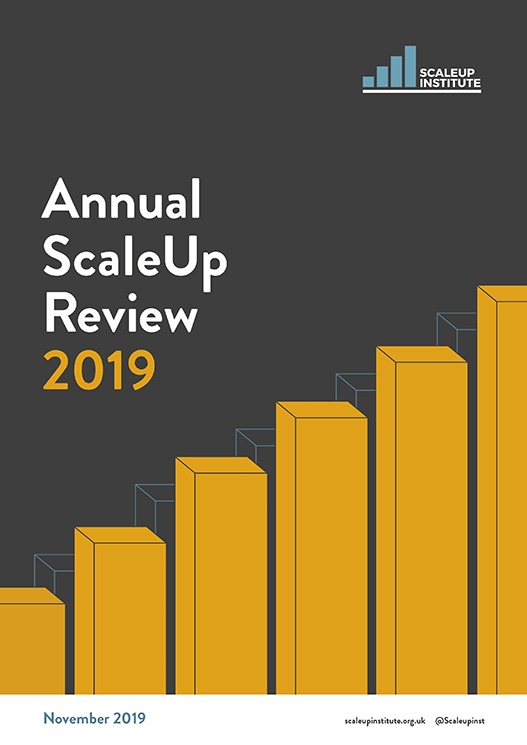Scaling firms increasingly concerned about access to markets at home and abroad
Leaders of the UK’s fastest-growing companies are increasingly concerned about access to global and domestic markets, warns the ScaleUp Institute, the observatory that monitors the state of scaling businesses.
Launching the ScaleUp Institute’s 2019 Review and the findings of its annual Scaleup Survey which canvasses the view of more than 500 scaleups, CEO Irene Graham said: “The number of scaleup businesses is growing across the country but progress is fragile and there are signs that recent growth is slowing.”
She continued: “This is no time for complacency. We are entering a time of economic challenge and unpredictability. This is underlined by the overwhelming perception among scaleup leaders that Brexit will have a negative impact on their businesses.”
The ScaleUp Institute is particularly concerned about the finding that access to markets at home and abroad is accelerating as an issue.
Irene Graham said: “Scaleup businesses are powerful engine drivers of the UK economy, generating £1.3trn in turnover. They are innovative, they are productive, they are international – and significantly they keep growing. We are entering a new era of economic challenge and uncertainty and it is no time to drop our guard if we want to close the scaleup gap with our competitors and increase the UK’s share of global trade.
“Some worrying trends emerge in the 2019 ScaleUp survey. Our scaleup companies are hungry to export and to collaborate with government and large corporates but 80% tell us that market access – particularly in the UK – is a major issue and rates of collaboration are low.
“The barriers are time-consuming and complex procurement processes, as well as a lack of identifiable opportunities. We need to pull down these barriers.”
Access to talent and skills remains another stubborn barrier to continued growth. It is the factor cited by the greatest number of scaleup leaders when asked to name their top three barriers. Almost seven in ten scaleup leaders say it is important to bring in talent from the EU.
Demand for opportunities to network with peers, to recruit non-executive directors and receive mentoring is high and increasing, particularly the ability to access them easily and locally. These issues will also be a priority focus for the ScaleUp Institute in 2020, Irene Graham noted.
New ScaleUp Support Finder launched
To help scaleups identify local programmes and services, the ScaleUp Institute has launched a nationwide interactive ScaleUp Support Finder which contains details of over 200 national and local programmes that it has mapped.
Irene Graham said: “Our ScaleUp Support Finder is designed to be a dynamic tool. Business leaders will be able to search for local programmes, apply to them as well as rate those they have attended.
“Local authorities, academic institutions, programme providers and others will also be able to request the ScaleUp Institute to carry out a detailed evaluation of a specific programme and conclude whether it should be endorsed or not.
“It is vital that busy scaleup leaders can search and find information about relevant programmes easily and we believe this tool will make an increasingly powerful contribution.”
She concluded: “Our review shows that the programmes established to help scaleups overcome the obstacles to growth are beginning to make an impact. However, scaleups are giving us a very strong signal that the ecosystem is failing to make enough headway to close the talent and markets gaps. These two challenges will be a priority focus for the ScaleUp Institute in the coming 12 months alongside our ongoing work on finance and infrastructure.’
Note for editors
- The 2019 ScaleUp Review can be accessed scaleup2021.kinsta.cloud/scaleup-review/
- The ScaleUp Support Finder can be accessed scaleup2021.kinsta.cloud/find-programmes/
- The ScaleUp Institute was established in 2015 by the private sector with the mission to make the UK the best place in the world to not just start but also scale a business. Its core focus is to turn evidence and data, gathered through research and analysis, into robust practical actions to remove the challenges of scaling businesses when it comes to talent, leadership, markets, finance and infrastructure.

